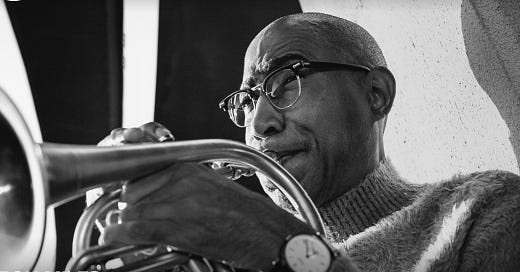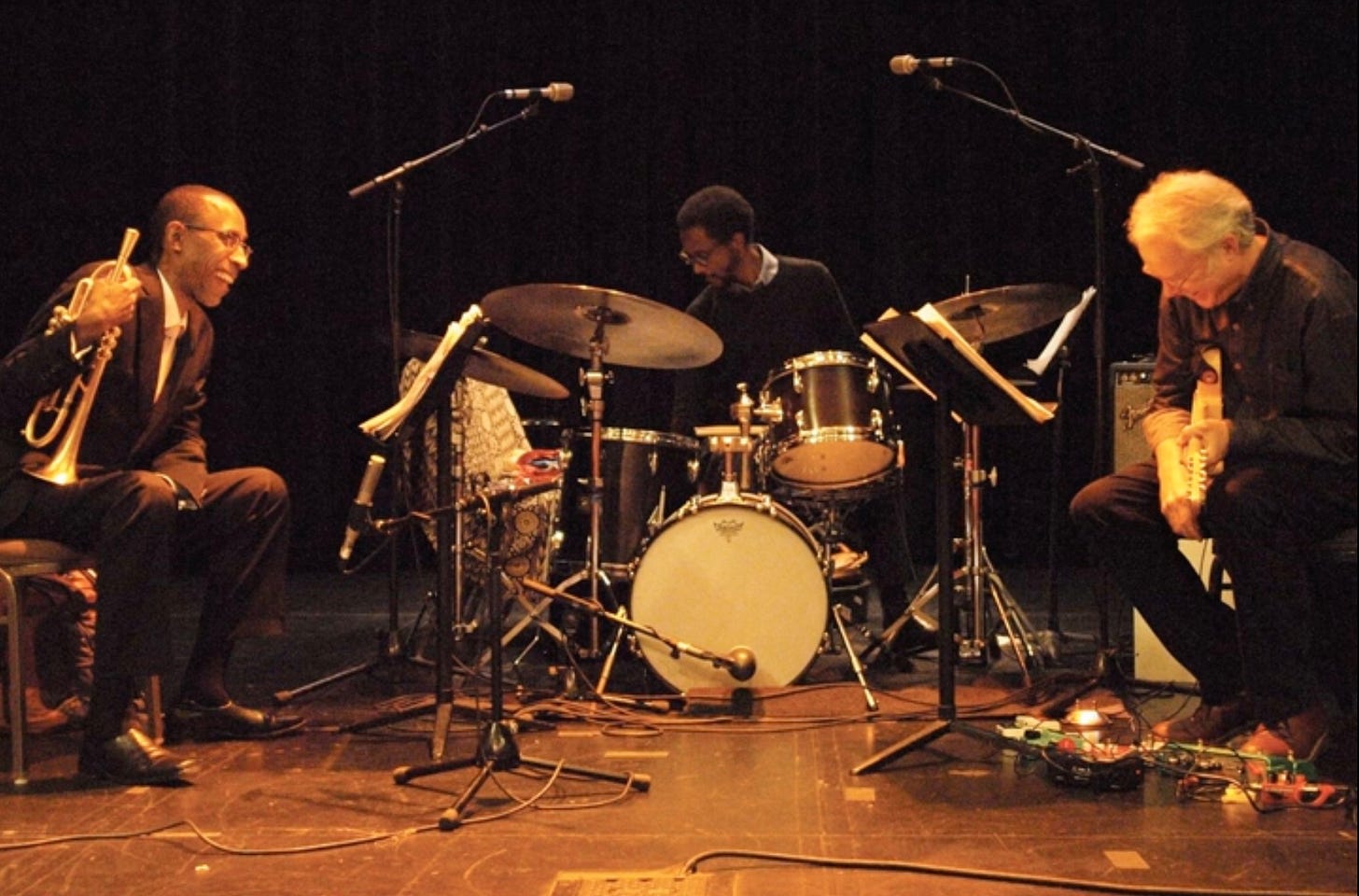Black History Month: Remembering Ron Miles
A staple of the Denver jazz scene, trumpeter, composer and bandleader Ron Miles was sought-after all over the world for his unique sound.
He used jazz as a starting point for his original voice, but Ron Miles helped elevate every style with which he was involved, from funk to sophisticated big-band charts to Hank Williams songs. A pillar of the Colorado jazz community, he found himself in high demand, standing quietly within the first rank of contemporary jazz artists. “People seek me out to play,” the beloved master cornetist said. “I feel really fortunate.”
Miles began playing the trumpet at age 11, when his family moved to Denver. He attended Denver East High School. “El Chapultapec, the Denver jazz club, had been an institution for decades, and hearing the many national acts who would pass through was a connection to the essence of jazz music,” Miles said in 2015. “I would also attend the concerts Dick Gibson hosted at the Paramount Theatre, where he would bring in his favorite musicians to play. Clark Terry was one of the legendary figures who came through—I got a scholarship to go to his jazz camp in Emporia, Kansas.”
Miles studied music at the University of Denver and started constructing a résumé with Boulder Creative Music Ensemble, a small, local avant-garde jazz group directed by saxophonist Fred Hess. “I was 19, and it was important to be tuned into another tradition of music and play with people outside of academia who were a lot better than me,” Miles said. “They were dedicated—we would play concerts where no one came and they would play like it was a full house. As time went on, we were able to hook up with people into a creative music scene that wasn’t so style-specific, such as Bruce Odland, and that opened things up for all of us.
“That experience shaped my vision about being true to your music. It takes a while to figure it out, but you don’t get to go backward, no matter how much you might like an older style of music. It can influence you and inspire you, but you don’t get to play that music. You just get to pick up where it was left off for you. You have to find your own music, the music of your time.”
Miles went on to the Manhattan School of Music. “Being from Denver, you wonder how you stack up at a place like that. People liked what I did. That was the first time The New York Times wrote about me. I found that if you present authentic music, there will be a place for you.”
Miles appeared as a sideman on dozens of projects, for artists as diverse as bandleader Mercer Ellington, drummer Ginger Baker, clarinetist Don Byron and pianist Jason Moran. The singular, lonesome-sounding cornetist also led ensembles featuring Hess and drummer Bruno Carr, and he had a dozen recordings featuring his compositions.
From 1998 until his passing in March 2022, Miles balanced his musical output with his career as an educator at Denver’s Metropolitan State College, where he coordinated the school’s innovative jazz-studies program and headed up the student jazz ensembles.
“I remember when I got lessons from Lester Bowie and Ornette Coleman—they didn’t even charge me. Without saying anything, they let me know that that’s what you do, you keep an eye out for the next group of folks. When I got a job at Metro, I said, ‘I’m not charging anybody for a lesson ever again.’ Sometimes young people just need someone to listen to them. That’s part of the responsibility of giving back to the community. Our heroes would have done the same thing if they’d had a full-time job.”
Since the mid-1990s, Miles had a running history with protean guitarist Bill Frisell, a fellow Denver native. Miles and New Orleans drummer Brian Blade played on The Sweetest Punch, Frisell’s alternative album to Elvis Costello & Burt Bacharach’s Painted from Memory CD. Teaming up with Frisell and Blade, Miles released several discs. Circuit Rider peaked at #46 on Billboard’s Jazz Albums chart in 2014, and 2020’s Rainbow Sign marked Miles’ debut for the iconic Blue Note label.
“In a marriage, after a while you don’t have to say that much, but even being around the silence is wonderful—and the silence says a lot,” Miles mused. “After all these years, Bill and I share a certain aesthetic about teamwork, that you don’t have to be the soloist hero that slays the dragon, that we’re all point guards taking pride in setting somebody up for the big moment.”
Miles enjoyed what he got out of his life as a prominent musician in Denver, far from the New York City jazz scene. “I’ve received a lot of support from a lot of angels to get well represented out in the world. Now we see a whole generation of musicians from Colorado. Because the scene’s not so big, you’ve got to pair up with this creative punk scene, and that art-rock scene, and a soul and hip-hop scene until we start to see the commonality. From there, we can carve out our own niche without having to be pulled into any particular style. You just get together with people and figure out how to make music.”
Enjoy a special mini documentary biography of Ron Miles, created by Colorado Music Experience, with a paid subscription.
Keep reading with a 7-day free trial
Subscribe to On Record Books | Music Retrospective from 1978 to 1998 to keep reading this post and get 7 days of free access to the full post archives.






